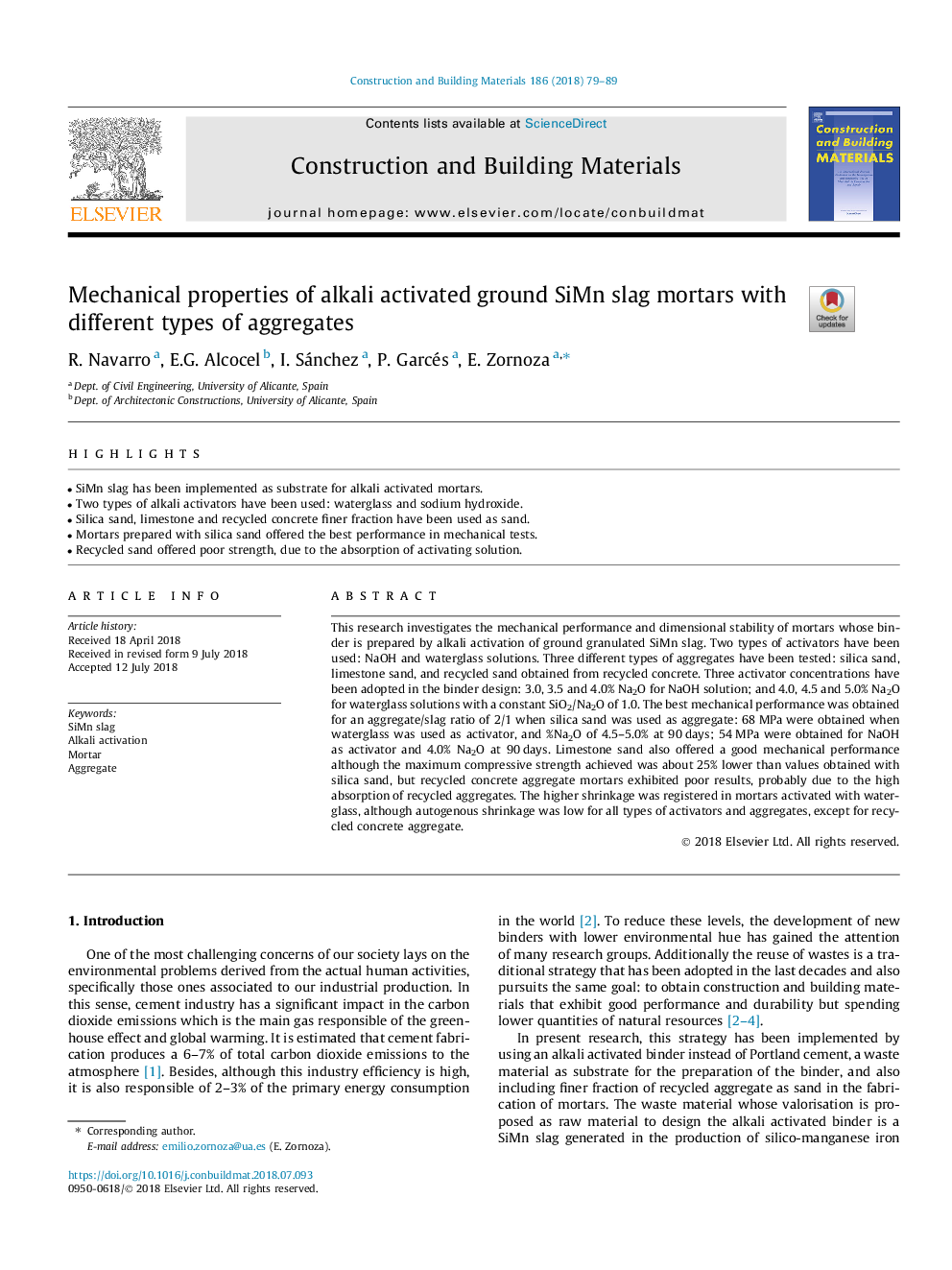| Article ID | Journal | Published Year | Pages | File Type |
|---|---|---|---|---|
| 6711517 | Construction and Building Materials | 2018 | 11 Pages |
Abstract
This research investigates the mechanical performance and dimensional stability of mortars whose binder is prepared by alkali activation of ground granulated SiMn slag. Two types of activators have been used: NaOH and waterglass solutions. Three different types of aggregates have been tested: silica sand, limestone sand, and recycled sand obtained from recycled concrete. Three activator concentrations have been adopted in the binder design: 3.0, 3.5 and 4.0% Na2O for NaOH solution; and 4.0, 4.5 and 5.0% Na2O for waterglass solutions with a constant SiO2/Na2O of 1.0. The best mechanical performance was obtained for an aggregate/slag ratio of 2/1 when silica sand was used as aggregate: 68â¯MPa were obtained when waterglass was used as activator, and %Na2O of 4.5-5.0% at 90â¯days; 54â¯MPa were obtained for NaOH as activator and 4.0% Na2O at 90â¯days. Limestone sand also offered a good mechanical performance although the maximum compressive strength achieved was about 25% lower than values obtained with silica sand, but recycled concrete aggregate mortars exhibited poor results, probably due to the high absorption of recycled aggregates. The higher shrinkage was registered in mortars activated with waterglass, although autogenous shrinkage was low for all types of activators and aggregates, except for recycled concrete aggregate.
Related Topics
Physical Sciences and Engineering
Engineering
Civil and Structural Engineering
Authors
R. Navarro, E.G. Alcocel, I. Sánchez, P. Garcés, E. Zornoza,
